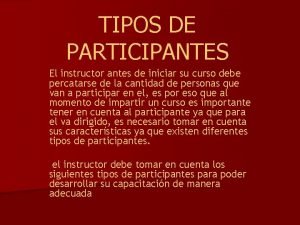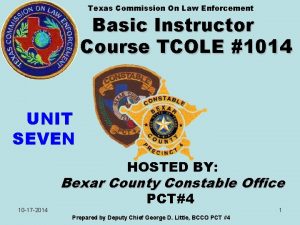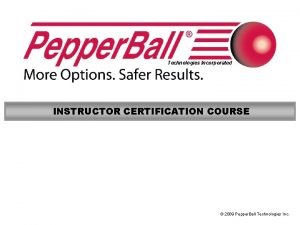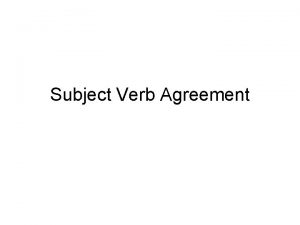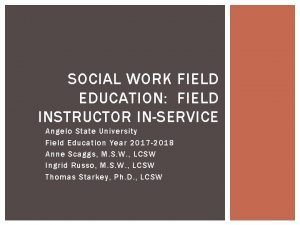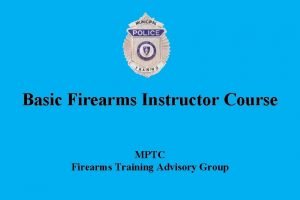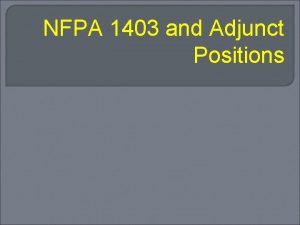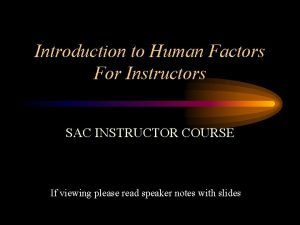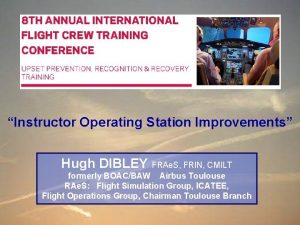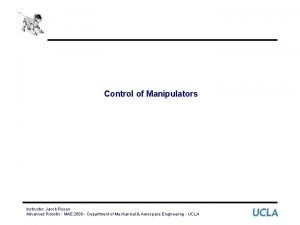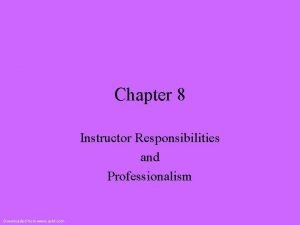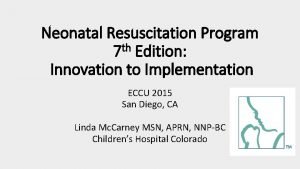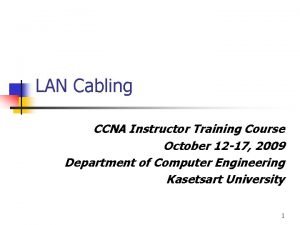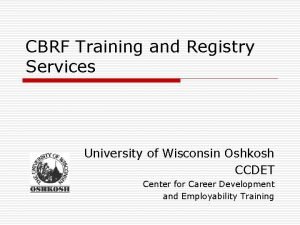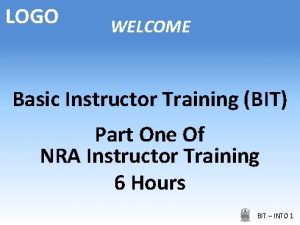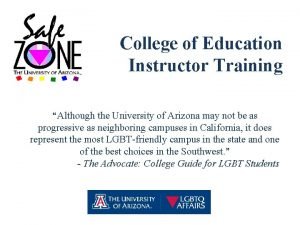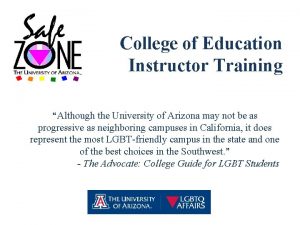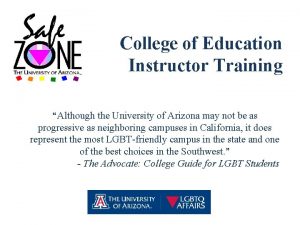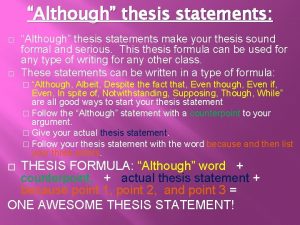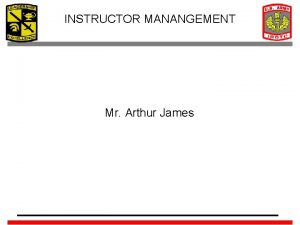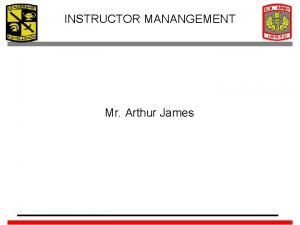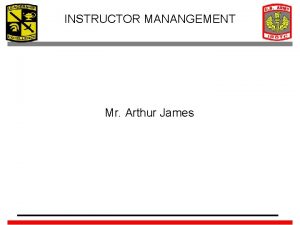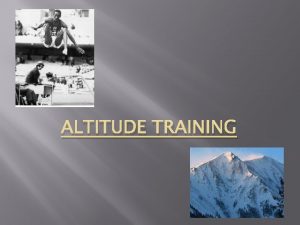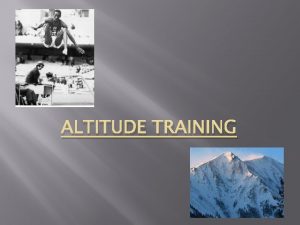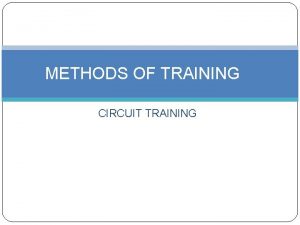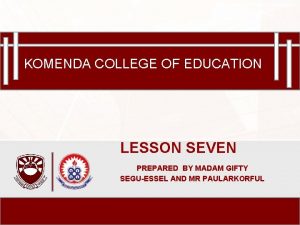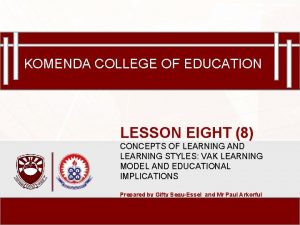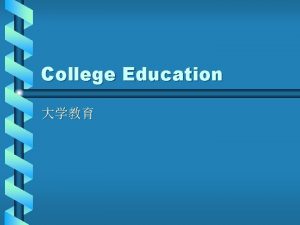College of Education Instructor Training Although the University

























- Slides: 25

College of Education Instructor Training “Although the University of Arizona may not be as progressive as neighboring campuses in California, it does represent the most LGBT-friendly campus in the state and one of the best choices in the Southwest. ” - The Advocate: College Guide for LGBT Students

It’s Elementary—Talking about Gay Issues in Schools All kids are affected by LGBTQ prejudice, and all adults have the ability and responsibility to address it. http: //www. youtube. com/watch? v =PWyj_Of. Qpn. U

The mission for the Office of Lesbian, Gay, Bisexual, Transgender, Questioning (LGBTQ) Affairs is to build, sustain and strengthen a safe, inclusive, and open environment for faculty, staff, appointed professionals, students, alumni, parents, and guests of all gender identities and sexual orientations.

LGBTQ Resource Center

A hub for LGBTQ Work on Campus


Pride Alliance Intern Team – Fall 2014


Impact of the Intern Program The most important thing I learned is that leadership is not about giving orders, it’s about taking a group of people who all have different strengths and guiding them to a common goal, while they learn from and work with each other. A good leader uses everyone’s strengths to make the vision come alive. There is not one thing I would change about my experience as an intern, I learned so much about myself and about the real world. -Arthur Vinuelas, Sophomore, Business Major I started the semester refusing to label myself an activist, but throughout the semester I have learned to be proud of the time I committed and all we accomplished. I am a proud ALLY. I learned I shouldn’t be quiet and ashamed about it. I am starting to understand what the work is really about. It’s about not staying in the background; it’s about doing something and reminding yourself why you fight the fight. I ended the semester feeling like I had walked into a room of strangers and was leaving knowing they were family. -Patty Putman, Sophomore, English Major

Next training: Saturday, August 29 th 10 am-3 pm Ventana Room , Student Union 10: 00 am-12: 30 pm, General Education Training 1: 00 pm-3: 00 pm, Ally Development Training Register online at UA LGBTQ Affairs website (lgbtq. arizona. edu) • Campus-wide program committed to making UA a safer, more welcoming, and inclusive environment for LGBTQ people • The complete Safe Zone training consists of two sessions, including a General Education and an Ally Development workshop • Participants receive a Safe Zone placard to display indicating support and nurturance for LGBTQ students, staff, and faculty on our campus • We also provide speakers, panels, and lecturers upon request!

Impact of Safe Zone Program I have a Safe Zone placard on my wall, and in my position working and mentoring students I have had clear and open communication with LGBTQ students regarding their personal struggles and relationships. I think the placard was the key that let the students know they could open up to me about all of the challenges they were facing in their lives. -UA Staff, from Impact of Safe Zone Survey, spring 2011 I consider the UA Safe Zone workshops to be the best, most directly applicable workshops I have ever attended on the UA campus. LGBTQ leadership is outstanding here at the U, and a source of great pride for me and many of my classmates. -UA Student, from Impact of Safe Zone Survey, spring 2011

What are LGBTQ Students experiencing? LGBTQ students face challenges both in k 12 educational settings and in colleges. Personal challenges include facing verbal and/or physical harassment, financial problems, lack of peer or mentorship groups, and more.

Hostile School Climates GLSEN’s 2013 School Climate Survey found: • LGBT students felt unsafe because of their sexual orientation (55. 5%) and their gender identity (37. 8%) • Additionally, 74. 1% of LGBT students reported being verbally harassed, and 36. 2% reported being physically harassed (pushed or shoved) • 16. 5% reported being physically assaulted (injured) at school in the past year. GLSEN has also released state-level data and found that 95% of Arizona respondents regularly heard “gay” used in a negative way, and only 16% were taught positive representations of LGBT people, history, and events. • Over the last decade and a half, more than one person a month on average has been reported to have been killed in the U. S. because of their perceived gender identity. • Gay, lesbian, and bisexual youth are 4 times more likely to attempt suicide. Transgender youth are 9 times more likely to attempt suicide.

Chilly Climates in Higher Education Settings Campus Pride’s 2010 State of Higher Education for Lesbian, Gay, Bisexual & Transgender People reveals a “chilly” campus climate for LGBTQ students staff and faculty nationwide: • One quarter (23%) of LGBQ staff, faculty, and students reported experiencing harassment. • More than half of all faculty, students, & staff hide their sexual identity (43%) or gender identity (63%) to avoid intimidation. • More than a third of all transgender students, faculty, & staff (43%) and 13% of LGBQ respondents feared for their physical safety.

UA LGBTQ+ Needs Assessment Survey One quarter (25%) of LGBTQ+ students seriously considered suicide, 3 x more than their cisgender/heterosexual peers. 3 x more trans students felt unsafe on campus than their LGBQ+ peers. Of those, gender questioning students felt the least safe with 0% saying they felt “very safe” on campus. LGBTQ Students are diagnosed with anxiety/depression 2 x more frequently than their cisgender/heterosexual peers.

Positive Interventions: ü Empathy, empathy ü Teacher intervention üSchool policies üShifting school climate (classroom discussions, visible support for LGBTQ people)

What Teachers can Do • Intervene when they hear bias-related comments and slurs. Use each comment as an opportunity to provide education and reaffirm school policy. • Request training on preventing harassment and discrimination • Set the climate in their classrooms early and as often as necessary • Treat all forms of bias-related harassment and slurs as serious and preventable • Find out about community resources and information • Integrate representations of LGBTQ people into existing curricula.

What Schools Can Do 1. Establish and publicize a harassment policy that specifically includes sexual orientation and gender, including gender identity, appearance, and behavior 2. Train teachers and staff to intervene 3. Support the establishment of a Gay-Straight Alliance (GSA) or similar student club 4. Ensure that students know where to go for information and support 5. Introduce curriculum that includes people and information LGBTQ

We All have a Part to Play in Creating Safe Schools • Curriculum infusion is essential to get students talking and learning about LGBTQ identities. This helps them see LGBTQ people as human beings and not a minority groups that should be bullied • Family can not buffer discrimination entirely. Students need peer groups and environments that are supportive and nurturing.

Top 5 Ways to Support LGBTQ Students & The Office of LGBTQ Affairs

Top 5 Ways You Can Support LGBTQ Students 1. Educate Yourself • • Know general terms & learn about LGBTQ issues in your field Don’t rely on students to educate you, do the work yourself Take advantage of Safe Zone Trainings Break down your own biases & recognize your privileges 2. Be a Visible Source of Support • Include LGBTQ themed flyers, posters and publications in • Display your support (Safe Zone Sign) your office 3. Don’t Make Assumptions • Don’t assume a student is heterosexual • Remember that you only know someone’s sexual orientation or gender identity if they tell you what it is

Top 5 Ways You Can Support LGBTQ Students 4. Be Inclusive in Language & Practice • Use gender-neutral terms (i. e. partner or significant other rather than gender specific terms like girlfriend or boyfriend) • Respect preferred pronouns • Use LGBTQ instead of "homosexual” • Don’t let tension around sexual orientation/gender identity continue to be unaddressed because you’re not sure what to do. 5. Speak Up • Talk to your students and your colleagues • Support other allies • Confront comments that are heterosexist or gender identity biased

How you can support our office -Know you are serving LGBTQ students -Become a Safe Zone -Know our campus resources -Refer students to our office


Need Advice? Need to Refer a Student? Jen Hoefle Olson, Program Director jhoefle@email. arizona. edu (520) 626 -1996 Student Union, Rm 404 -O
 詹景裕
詹景裕 Salahaddin university college of science
Salahaddin university college of science Participante contreras
Participante contreras Basic instructor course tcole
Basic instructor course tcole Basic instructor course texas
Basic instructor course texas Basic instructor course #1014
Basic instructor course #1014 Pepperball training manual
Pepperball training manual Neither of my two suitcases are adequate for this trip
Neither of my two suitcases are adequate for this trip Instructor vs teacher
Instructor vs teacher Ospfv
Ospfv Mptc firearms instructor
Mptc firearms instructor Basic instructor course texas
Basic instructor course texas Basic instructor course #1014
Basic instructor course #1014 Virtual instructor art
Virtual instructor art Nfpa 1403 instructor to student ratio
Nfpa 1403 instructor to student ratio Human factors instructor
Human factors instructor Instructor operating station
Instructor operating station Catia instructor
Catia instructor Instructor
Instructor Instructor responsibilities and professionalism lesson plan
Instructor responsibilities and professionalism lesson plan Tcole 1014 basic instructor course
Tcole 1014 basic instructor course Jrotc marksmanship instructor course online
Jrotc marksmanship instructor course online How to become an nrp instructor mentor
How to become an nrp instructor mentor Utp cable
Utp cable Cbrf wisconsin registry
Cbrf wisconsin registry Nra certified instructor logo
Nra certified instructor logo


